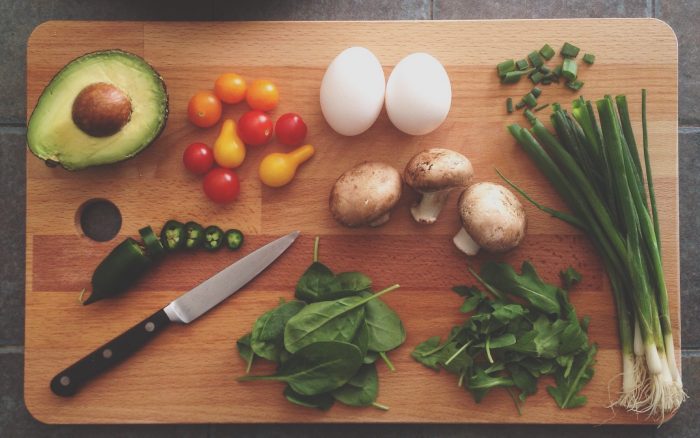Healthy eating. It’s something everyone knows they should do, but few of us do as consistently as we would like. The purpose of this guide is to share practical strategies for how to eat healthy and break down the science of why we often fail to do so. Check out the latest Exipure reviews.
Now, I don’t claim to have a perfect diet, but my research and writing on behavioral psychology and habit formation has helped me develop a few simple strategies for building and strengthening a healthy eating habit without much effort or thought.
You can click the links below to jump to a particular section or simply scroll down to read everything. At the end of this page, you’ll find a complete list of all the articles I have written on healthy eating.
I. The Science of Healthy Eating
- Why We Crave Junk Food
- How Food Scientists Create Cravings
II. How to Make Healthy Eating Easier
- The Importance of Environment for Healthy Eating
- How to Eat Healthy Without Noticing
- What Should I Eat?
- Two Simple Ways to Eat Healthy
- How to Eat Whatever You Want Without Feeling Guilty
III. How to Stick to a Healthy Eating Habit
- Address the Root Problem of Unhealthy Eating
- How to Say No to Temptation
- This One Phrase Will Help You Eat Healthy Time After Time
- Where to Go From Here

I. The Science of Healthy Eating
Every nutritionist and diet guru talks about what to eat. Instead, I’d like to discuss why we eat the way we do and how we can change that. The purpose of this guide is to share the science and strategy you need to get the results you want.
Now, the benefits of good nutrition are fairly obvious to most of us. You have more energy, your health improves, and your productivity blossoms. Healthy eating also plays a huge role in maintaining a healthy weight, which means a decreased risk of type 2 diabetes, certain cancers, heart problems, high blood pressure, and a host of other health ailments. (Genetics also plays a significant role. I’m not some crazy person who thinks genes don’t matter.)
But if there are so many good reasons for healthy eating, why is it so difficult to actually do? To answer that question, we should start by learning why we crave junk food.
Before we talk about how to get started, let’s pause for just a second. If you’re enjoying this article on healthy eating, then you’ll probably find my other writing on performance and human behavior useful. Each week, I share self-improvement tips based on proven scientific research through my free email newsletter.
To join now, just enter your email address below and click “Get Updates!”
Don’t see a signup form? Send me a message here and I’ll add you right away.
Why We Crave Junk Food
Steven Witherly is a food scientist who has spent the last 20 years studying what makes certain foods more addictive than others. Much of the science that follows is from his excellent report, Why Humans Like Junk Food.
According to Witherly, when you eat tasty food, there are two factors that make the experience pleasurable.
First, there is the sensation of eating the food. This includes what it tastes like (salty, sweet, umami, etc.), what it smells like, and how it feels in your mouth. This last quality — known as “orosensation” — can be particularly important. Food companies will spend millions of dollars to discover the most satisfying level of crunch in a potato chip. Food scientists will test for the perfect amount of fizzle in a soda. These elements all combine to create the sensation that your brain associates with a particular food or drink.
The second factor is the actual macronutrient makeup of the food — the blend of proteins, fats, and carbohydrates that it contains. In the case of junk food, food manufacturers are looking for a perfect combination of salt, sugar, and fat that excites your brain and gets you coming back for more.
Here’s how they do it…
How Food Scientists Create Cravings
There is a range of factors that scientists and food manufacturers use to make food more addictive.
Dynamic contrast. Dynamic contrast refers to a combination of different sensations in the same food. In the words of Witherly, foods with dynamic contrast have “an edible shell that goes crunch followed by something soft or creamy and full of taste-active compounds. This rule applies to a variety of our favorite food structures — the caramelized top of a creme brulee, a slice of pizza, or an Oreo cookie — the brain finds crunching through something like this very novel and thrilling.”
Salivary response. Salivation is part of the experience of eating food, and the more a food causes you to salivate, the more it will swim throughout your mouth and cover your taste buds. For example, emulsified foods like butter, chocolate, salad dressing, ice cream, and mayonnaise promote a salivary response that helps to lather your taste buds with goodness. This is one reason why many people enjoy foods that have sauces or glazes on them. The result is that foods that promote salivation do a happy little tap dance on your brain and taste better than ones that don’t.
.bmp)




